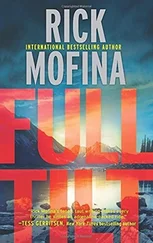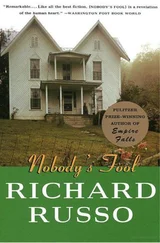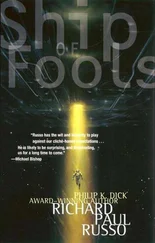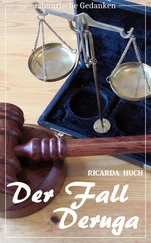“My dear friends,” intoned Reverend Tunic, who unless Raymer was much mistaken hadn’t a single friend, dear or otherwise, within earshot, “I submit that it is not the duty of one man, no matter how great and wise, to bring justice and rectitude to the world. No, that responsibility belongs to us all, to each and every one of us…”
Except me, thought Chief of Police Douglas Raymer. Blinking back perspiration or tears — he couldn’t be sure which — he was beyond weary of all obligation. No, the thing to do was abdicate. Surrender the field. Admit defeat. Become a gravedigger.
As he’d become lost in the memory of Becka’s tragic end, his hand, he now realized, had unconsciously migrated back into his trouser pocket, where it was again depressing the metal plate of the garage remote. What was the range on these things? he wondered. Was a door — or several doors, if Charice was right — sliding up somewhere in Bath? In Schuyler Springs? In Albany? Raymer found himself smiling at this patently absurd notion, picturing his wife’s lover, the asshole, watching his garage door go up, then down, then up again, and knowing that the man who was making this happen was nearby and armed.
Was this the compromise he was searching for? Quit the job he wasn’t cut out for, but first find out who the opener belonged to and let the rotten bastard know he was busted? If Raymer could solve just this one mystery, he could let go of everything else — responsibility and rectitude, obligation and the fucking Iroquois with their supple moccasins and whatever other happy horseshit Reverend Tunic was running up his spiritual flagpole. Okay, maybe it wasn’t possible to reinvent yourself, but you could move on, right? People did it every day. He didn’t hate Becka for her faithlessness. She was simply, like his career in law enforcement, a mistake. Everyone but he himself seemed to have recognized this from the start. When introduced to the bride-to-be at the rehearsal dinner, Jerome, who’d reluctantly agreed to be his best man when Raymer confessed he had no other close friends, immediately sussed out the situation. “Damn, Dougie,” he said. “You’re marrying up, boy.” Raymer had been pleased by the other man’s enthusiasm and proud that Becka was such a fine-looking woman. And of course it felt good to have his own assessment — that he was a lucky man — confirmed. But trailing in the wake of his friend’s enthusiasm was his unspoken assumption that luck this good was bound to run out.
“There’s a word,” intoned the reverend, “for those among us who do not each day take up the burden of making the world a better, more just place.”
That same twelve-year-old girl was nudging her mother now. Look, Mama. Look at that man with his hand in his pocket. What’s he doing, Mama?
“Do you know what it is? The word is…‘shirker.’ ”
He’d stopped sweating, Raymer realized, and his soaked, heavy shirt now felt cold and clammy. His knees felt jellied.
“And those who do so shirk not just responsibility and human fellowship but God himself. Yes, friends, the shirker shirks the divine.”
And the birker birks the bovine, Raymer thought. The perker perks the povine.
The girl’s mother was regarding him with disgust, but for once he felt his own much-abused innocence and smiled back at the woman beatifically. Over and over he depressed the metal plate, indulging again the pleasant notion that somewhere a door was rising and falling on the truly guilty.
“And what of God?” Reverend Tunic wanted to know.
Good question, Raymer thought.
“Does God love the shirker?”
Yes. He loves us all.
“No!” Tunic emphatically disagreed. “God does not.”
Well, fuck him, then, Raymer thought, giddy with heat and blasphemy. Shame on God.
“Because a shirker is a coward.”
No, God is.
“A shirker always assumes that the difficult duty of daily living is someone else’s, that the thunderclouds which darken the sun and obscure the light of reason are someone else’s problem.”
But why should clouds be anybody’s responsibility?
“No, friends, Barton Flatt was no shirker. Shirking is not his legacy. And as he journeys to his final reward…”
Dirt? Decomposition? Worms?
“…we honor him one last time by reaffirming in his presence…”
His absence, surely.
“…our faith. In God. In America. And in our fair city. Because only then…”
Raymer started, suddenly alert, his reverie instantly dispelled. Had he momentarily lost his balance in the heat, or had the ground beneath his feet actually trembled? Apparently the latter, because all those gathered around the open grave had now assumed that classic surfer’s stance, arms akimbo for balance. Even Reverend Tunic, who to this point had seemed untethered to any earthly reality, danced nimbly back from the hole in the ground, as if he’d just been informed that the bell he’d supposed was tolling for another was actually beckoning him.
Raymer’s first guilty thought was that if the earth shuddered, he himself must be the cause. He’d been silently blaspheming, and God, eavesdropping, had shown his displeasure. Anxious not to incur further disapproval, he was about to offer a silent but heartfelt apology when he heard someone say, “Earthquake.” In general, Raymer much preferred natural explanations to divine ones, but he doubted the ground had shaken long enough — a second at most — to qualify as a quake. It had felt less like a tectonic shift than a concussion, as if somewhere nearby the earth had been impacted. Had the plane he’d been watching earlier fallen from the sky? Had he somehow made this happen by playing with the garage-door opener? He took the remote out of his pocket and studied it, bewildered. Everyone, he realized, was staring at him.
And just that quickly, Douglas Raymer, chief of police, was furious, because wasn’t this the very problem he’d been trying to articulate earlier, the trouble with police work in a nutshell? Responsibility, justice, love, rectitude, legacy. Words with about as much substance as a vapor trail. A pompous windbag in an embroidered silk tunic could make a tidy living pretending by means of florid rhetoric to know all about such things. But let the ground shake beneath your feet, and it was cops people turned to for answers. Like it was their job to explain the fundamental instability of the world. Like they knew how to shore it up.
Gus Moynihan, the mayor, had grabbed him by the elbow. “Raymer?” he said, apparently puzzled by the device in his hand, a good mile from the nearest garage. “The damn ground just vibrated like a cheap dildo. You gonna just stand there?”
That didn’t seem like such a bad idea, actually. If it was an earthquake, he couldn’t imagine a better place to be than in the middle of vast, flat Dale, where there was nothing within a hundred yards tall enough to fall on them. Still, for the time being at least, he was the police chief, and action of some sort was probably in order. The thing to do, he decided, was to call Charice. She usually had answers or plenty of suggestions and, when these ultimately failed, sympathy, though even this was often laced with sarcasm. Slipping his radio off the metal hook on his belt, Raymer pressed TALK, pausing only half a beat to wonder what sort of experience Gus Moynihan had with cheap dildos, or expensive ones for that matter, before saying, “Charice? You there?”
No response.
The mourners were all talking at once, and now Raymer thought he heard somebody say, “Meteor.” Had a meteor struck the station? Killed Charice right there at the switchboard?
Читать дальше












